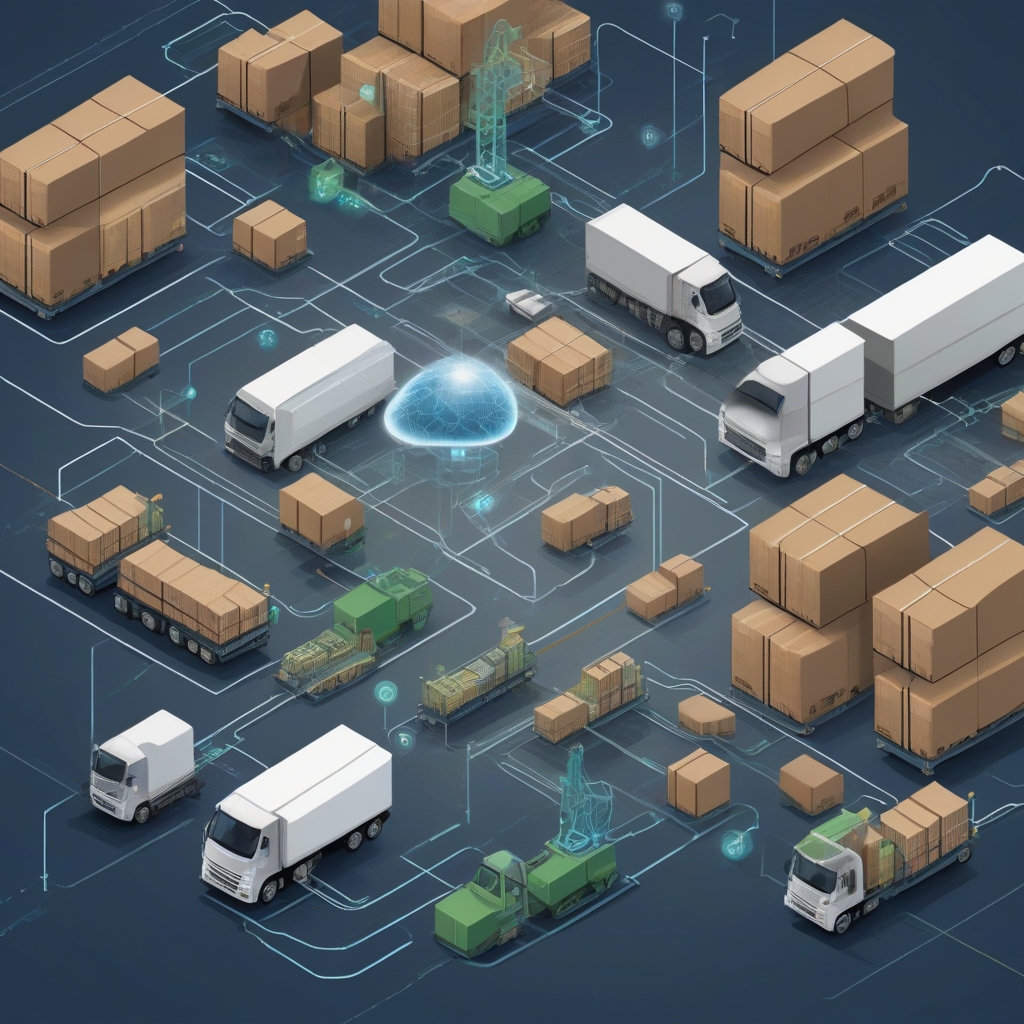Introduction to AI in Supply Chains
In today’s fast-paced global market, efficiency and innovation are key drivers for any successful supply chain operation. Artificial intelligence (AI) is at the forefront of this transformation, offering myriad opportunities to enhance productivity, reduce costs, and improve overall supply chain management. By analyzing vast amounts of data, AI systems can provide critical insights and predictive analytics that were previously unattainable.
Current Use Cases of AI in Supply Chains
AI is not only a futuristic concept but a present-day reality in the supply chain industry. Here, we delve into some of the current applications of AI that are revolutionizing how businesses operate:
1. **Demand Forecasting**
By leveraging AI algorithms, companies can accurately predict future product demand. These forecasts are based on historical data, market trends, and external factors such as economic conditions and consumer behavior.
- Improved accuracy ensures better inventory management.
- Helps in reducing stockouts and overstock situations.
2. **Predictive Maintenance**
AI can be instrumental in monitoring equipment health, predicting maintenance needs before failures occur. This proactive approach minimizes downtime and maintenance costs.
- Reduces unexpected equipment failures.
- Enhances the lifespan of machinery.
3. **Route Optimization**
AI-driven route optimization tools are changing the logistics game by finding the most efficient paths for delivery vehicles. This not only saves time but also fuel, making the whole process more sustainable.
- Maximizes delivery efficiency and customer satisfaction.
- Reduction in carbon emissions and operational costs.
4. **Supplier Risk Management**
AI can assess and monitor risks associated with suppliers by analyzing economic, geopolitical, and environmental factors. Businesses can mitigate supply chain disruptions by selecting the most stable suppliers.
- Provides a comprehensive view of supplier stability.
- Enables swift response to potential risks.
5. **Inventory Management**
Through intelligent automation, AI can manage stock levels, automatically reorder items when inventory runs low. This seamless integration ensures optimal inventory levels at all times.
- Minimizes holding costs and frees up capital.
- Ensures essential items are always in stock.
Future Use Cases of AI in Supply Chains
Looking ahead, AI’s potential in the supply chain sector is boundless. Here are some exciting possibilities that could redefine the industry in the years to come:
1. **Autonomous Delivery Systems**
Drones and autonomous vehicles are set to become more prevalent, making last-mile delivery faster and more efficient. As AI in logistics advances, we can expect widespread adoption of these technologies.
- Provides real-time package tracking to enhance security.
- Reduces the cost and time associated with traditional delivery methods.
2. **Blockchain and AI Integration**
The integration of AI with blockchain technology can offer heightened transparency and security across the supply chain. It will enable more accurate tracking and verification of products from source to consumer.
- Prevents fraud and counterfeit goods.
- Builds trust with customers through enhanced transparency.
3. **Dynamic Supply Chain Blueprinting**
AI has the potential to create dynamic digital models of supply chain networks, providing real-time analysis and optimization. Such modeling will allow companies to simulate different scenarios and adapt to changes swiftly.
- Allows for proactive planning and decision-making.
- Enhances the adaptability and resilience of supply chains.
4. **Enhanced Personalization**
With AI, companies can offer personalized products and services based on consumer preferences and buying histories, creating more value and strengthening customer loyalty.
- Creates unique customer experiences.
- Fosters long-term customer relationships.
5. **Sustainable Practices**
AI-driven insights can help companies adopt more sustainable practices by monitoring the environmental impact of their operations and suggesting more eco-friendly alternatives.
- Reduces carbon footprint.
- Aligns corporate goals with global sustainability standards.
Conclusion
The impact of artificial intelligence on supply chains is a testament to its transformative power. By addressing current challenges and embracing future opportunities, businesses can sustain their competitive edge in the marketplace. AI is not just a tool; it’s an integral component of a modern supply chain infrastructure, poised to revolutionize how we view logistics and distribution in the decades to come. As these technologies continue to evolve, it is essential for companies to stay ahead by investing in AI-driven solutions that bolster resiliency and drive growth.

Leave a Reply